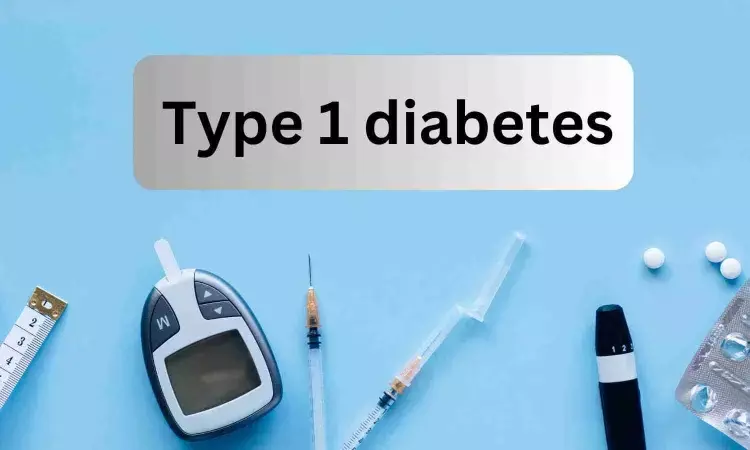- Home
- Medical news & Guidelines
- Anesthesiology
- Cardiology and CTVS
- Critical Care
- Dentistry
- Dermatology
- Diabetes and Endocrinology
- ENT
- Gastroenterology
- Medicine
- Nephrology
- Neurology
- Obstretics-Gynaecology
- Oncology
- Ophthalmology
- Orthopaedics
- Pediatrics-Neonatology
- Psychiatry
- Pulmonology
- Radiology
- Surgery
- Urology
- Laboratory Medicine
- Diet
- Nursing
- Paramedical
- Physiotherapy
- Health news
- Fact Check
- Bone Health Fact Check
- Brain Health Fact Check
- Cancer Related Fact Check
- Child Care Fact Check
- Dental and oral health fact check
- Diabetes and metabolic health fact check
- Diet and Nutrition Fact Check
- Eye and ENT Care Fact Check
- Fitness fact check
- Gut health fact check
- Heart health fact check
- Kidney health fact check
- Medical education fact check
- Men's health fact check
- Respiratory fact check
- Skin and hair care fact check
- Vaccine and Immunization fact check
- Women's health fact check
- AYUSH
- State News
- Andaman and Nicobar Islands
- Andhra Pradesh
- Arunachal Pradesh
- Assam
- Bihar
- Chandigarh
- Chattisgarh
- Dadra and Nagar Haveli
- Daman and Diu
- Delhi
- Goa
- Gujarat
- Haryana
- Himachal Pradesh
- Jammu & Kashmir
- Jharkhand
- Karnataka
- Kerala
- Ladakh
- Lakshadweep
- Madhya Pradesh
- Maharashtra
- Manipur
- Meghalaya
- Mizoram
- Nagaland
- Odisha
- Puducherry
- Punjab
- Rajasthan
- Sikkim
- Tamil Nadu
- Telangana
- Tripura
- Uttar Pradesh
- Uttrakhand
- West Bengal
- Medical Education
- Industry
People with well-controlled, long-duration type 1 diabetes may still face high risk of heart disease, claims study

People who have had type 1 diabetes for more than 50 years without kidney complications may still be at substantial risk for heart disease, despite excellent control of blood pressure, cholesterol and blood sugar levels, according to a study presented Saturday at ENDO 2024, the Endocrine Society’s annual meeting in Boston, Mass.
Heart disease is a major cause of death in people with type 1 diabetes, especially in those who develop kidney complications from diabetes.
“As people with type 1 diabetes live longer due to improved medical care, a substantial proportion of these patients survive without kidney complications, but are still at high risk for heart disease,” said lead researcher Marc Gregory Yu, M.D., of the Joslin Diabetes Center and Harvard Medical School in Boston, Mass.
Yu and colleagues examined data from a patient group known as the “Medalists,” consisting of more than 1,000 individuals from across the United States who have had type 1 diabetes for over 50 years. The “Medalists” are noteworthy because only 13% have kidney complications from diabetes, and most also have excellent control of blood pressure, cholesterol, and blood sugar levels-all traditional risk factors for heart disease. Despite this, around 40% of them still report having heart disease.
From the overall study group of more than 1,000 people, 153 underwent CT scans to detect calcium deposits in the heart’s blood vessels, and 111 underwent MRI imaging to evaluate the heart’s overall structure and pumping capacity. The “Medalists” had higher calcium deposits in the heart’s blood vessels, although with comparable heart structure and function, compared to other individuals of a similar age with type 1 or type 2 diabetes. Higher blood sugar levels among the Medalists were also observed to be closely linked to heart disease. “This highlights the continued importance of blood sugar control in type 1 diabetes despite advancing age,” Yu said.
“We likewise observed that risk factors for heart disease may differ among the ‘Medalists’ when they were grouped according to those who have and don’t have kidney complications from diabetes,” Yu said. “These risk factors may also be different for type 1 diabetes in general, as compared to type 2 diabetes. The findings may help guide the development of new medications specifically targeted for heart disease in type 1 diabetes.”
Dr Kamal Kant Kohli-MBBS, DTCD- a chest specialist with more than 30 years of practice and a flair for writing clinical articles, Dr Kamal Kant Kohli joined Medical Dialogues as a Chief Editor of Medical News. Besides writing articles, as an editor, he proofreads and verifies all the medical content published on Medical Dialogues including those coming from journals, studies,medical conferences,guidelines etc. Email: drkohli@medicaldialogues.in. Contact no. 011-43720751


